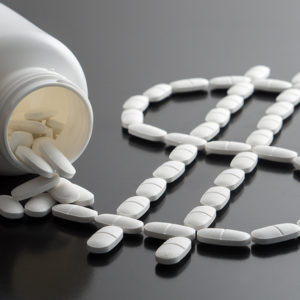Pharmaceutical firms are unveiling their Q2 earnings right now, and America’s largest drug manufacturers are flexing their muscles. Drug giants Bristol Myers Squibb, Merck, Novartis, and Johnson & Johnson all boasted Q2 earnings in the billions. Those companies posted $1.1, $1.2, $2.9, and a whopping $6.3 billion in net earnings, respectively. While the average financial observer might assume those enormous profits are a result of innovation and shrewd business maneuvering, the real driving force behind the success is the ballooning cost of prescription drugs.
For decades, massive pharmaceutical firms have manipulated markets and government regulations to skirt the law and limit competition – all while making a massive profit off the backs of everyday Americans looking to afford their life-saving medications.
Prescription drugs have a massively outsized impact on the American healthcare system. In the United States, two in three Americans rely on at least one prescription. In 2019 alone, there were almost 3.9 million prescriptions filled, a number that Georgetown University estimates accounts for 16 percent of all healthcare costs each year, or an extraordinary $1,200 a year for every American family. And for most Americans, their prescriptions are not a choice. Those medications are used to treat debilitating chronic pain and life-threatening conditions.
Drug companies are acutely aware of their role in the American healthcare system, and they’ve used their immense influence to game that system. Pharma executives have waxed poetic about how high drug prices are an unfortunate necessity — the lamentable cost of business that catalyzes the research required to discover novel treatments, they say. However, the evidence has shown that simply isn’t true. In 2019, a group of researchers from the University of Pittsburgh released data demonstrating drug companies raked in $8.6 trillion from 2000 to 2018 in profit just by raising the prices of the most common drugs on the market without making any major changes to production methods or formulations.
A closer look at how profits are used is even more cause for concern. Big drug companies can use the money they make to engage in “pay-for-delay,” an unscrupulous tactic used by massive drug companies to stifle competition and keep drug prices sky-high. Through these pay-for-delay schemes, which the FTC estimates cost Americans an extra $3.5 billion per year, drug companies pay smaller manufacturers not to produce the generic version of drugs, even after the drug’s patent expires. This means smaller drug companies don’t have any incentive to make the generics that drive down the cost of prescriptions for everyday Americans, and big pharmaceutical firms can continue generating outrageous profits without having to innovate.
As Q2 earnings continue to roll out, we’re seeing the decades-long pattern continue – huge drug companies are raking in money and profiting off the backs of sick Americans. While President Joe Biden has taken aim at pay-for-delay schemes with his recent executive order on competition, more action is needed. We need our elected leaders in Congress, like Senate Majority Leader Chuck Schumer (D-N.Y.) and Speaker of the House Nancy Pelosi (D-Calif), to take action and work toward common-sense solutions to lower prescription drug costs. The American people are counting on it.

